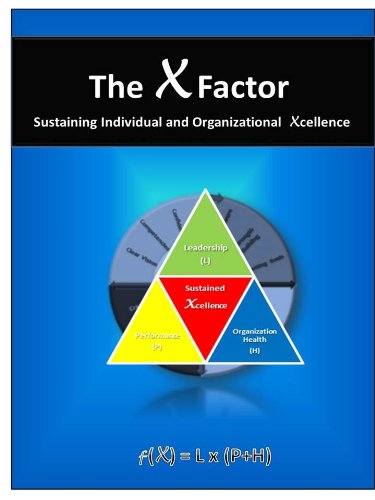Leadership and the Principles Of War Applied To Business: Two Sides Of The Same Coin
By Lieutenant General (Retired) Frank Kearney & Major General (Retired) Spider Marks, Sunday, January 01, 2017
It is quite common to view military leadership through a much broader lens and ascribe its characteristics and principles to business. It’s also a good idea; it seems to work.
The “missions” of business are not dissimilar from the military…defining the purpose, describing the necessary tasks, designing the organization, building the team, and achieving open and precise communications. The risks are similar as well. Sadly but inevitably, soldiers may die in combat and their units may suffer loss; nothing in life is more tragic or permanent. Similarly, a business may fail and drag its employees down with it. Certainly, this does not place anyone at physical risk, but a negative outcome in business is personally damaging and the effects lasting.
The art of war has been practiced and studied for millennia. Not unlike other theoretical fields of study or practical professions, the art of war is rooted in a doctrine, a set of principles.
The Principles of War, codified by Carl Von Clausewitz, a Prussian who fought in the Russian Army in the early 19th century against Napoleon, guides our study of warfare and military leadership in war today. By comparison, Peter Drucker, the brilliant and prolific (over 25 books) author who studied and established the guiding principles of business, shares many of Clausewitz’s views.
What Clausewitz did for the study of war, Drucker did for business. Military and business leadership arguably are two sides of the same coin.
There are nine Principles of War. They are objective, offensive, mass, economy of force, maneuver, unity of command, security, surprise, and simplicity. Below is a brief description and a crosswalk of each principle of war to business; it’s not surprising to see the similarities and overlap.
1. Objective – This is the ultimate purpose of war, to destroy the enemy's ability and will to fight, by directing every military operation toward a clearly defined, decisive and attainable end.
No business has ever emerged from infancy of a notion to realization of growth without a clear and decisive statement of purpose. An example: Amazon's vision is to be “earth's most customer centric company; to build a place where people can come to find and discover anything they might want to buy online."
2. Offensive – Seize, retain, and exploit the initiative. Offensive action is the most effective and decisive way to attain a clearly defined common objective while maintaining freedom of action and achieving decisive results.
Offensive demands disruption. You should be first to market by establishing the bar. Of course, you’d prefer to have market share and defend against the newcomers than try to break in with possibly nothing more than a knock off. If you want to own the high ground, take it. You should want to be there first.
3. Mass – By synchronizing the effects of overwhelming combat power, rather than concentrating forces, at the decisive place and time, a numerically inferior force can achieve decisive results, while limiting exposure to enemy fire.
Reinforce success. You know what you do well; you know your core offerings. The market is not reticent. It will tell you, if you’re paying attention to it, what works and what doesn’t. Clearly, you must “take your pulse” routinely but don’t over analyze what you’re doing and how you’re doing it. If something is working, drive on, gain speed and momentum. Put your competition on notice that you are willing to compete. However, beware hubris. If you kick up enough dust, you draw attention. Understand that success in one area or domain can lead to risk in others.
4. Economy of Force – This is the opposite of mass. Economy of force is the realization that one must employ all combat power in the most effective and judicious way possible. Every part of the force must have purpose.
Mass and economy of force – These two principles keep us in balance. You must focus on what supports and advances the core delivery and get behind that effort with every resource. Simultaneously, you must be mindful of exposure that this priority effort requires. Where are you most weak when strong elsewhere? Answer that question to identify and mitigate risk.
5. Maneuver – Maneuver is the deliberate movement of forces in relation to the enemy to gain an advantage. It is used to exploit your successes and to preserve your freedom of action. Maneuver is a demonstration of initiative.
If you’re stagnant in business, you’re irrelevant, at risk, and ultimately dead. Stay focused on the core of your business and invest (maneuver) to new markets and new revenue channels. Think disruption but don’t grab at every shiny object. Have a plan to get to where you are not.
6. Unity of Command – For every objective, you must seek unity of command and unity of effort. Unity of command means that all the forces are under one responsible commander.
There’s always someone who’s in charge. However, in companies with a matrix design of teaming to attack opportunities, leadership often is never declared or, more importantly, resourced. Set your teams up for success and clearly establish the authority and responsibility lines at the beginning. Remove any doubt about who’s in charge.
7. Security – You should never permit the enemy to acquire unexpected advantage. Security enhances freedom of action by reducing vulnerability to hostile acts, influence, or surprise. Security results from knowledge of your enemy and solid planning.
8. Surprise – You must strike the enemy at a time, place, and manner for which he or she is unprepared. Surprise can decisively shift the balance of combat power and momentum.
Security and surprise – Protect your organization from competitors and yourself. If you can accomplish that, you’ll never be completely surprised. The best security is a greater understanding of the market environment and competitors. Mostly, competitors (your enemy) are outside your organization; however, increasingly and troubling, your worst enemy may be “inside the wire” in the form of an insider threat. Have a program to monitor the environment and yourself. If you know yourself and the environment, you’ll win. At the end of the day, it is about winning.
9. Simplicity – Prepare clear, uncomplicated plans and concise orders to ensure their understanding. Everything in war is very simple, but the simple thing is difficult. Other factors being equal, parsimony is to be preferred.
We know the KISS rule…keep it simple silly. Possibly a less insulting description is to use Occam’s Razor, the principle of parsimony, economy, or succinctness. Among competing hypotheses, the hypothesis with the fewest assumptions should be selected. Of course! In everything in life, never deviate from this rule. From Steve Jobs: “That’s been one of my mantras — focus and simplicity. Simple can be harder than complex. You have to work hard to get your thinking clean to make it simple. But it’s worth it in the end. because once you get there, you can move mountains.”
The basics of leadership are to influence a team to get the job done by providing purpose, direction, and motivation. It’s fair to say that when the principles of war are applied to business, successful outcomes are more likely.
Additionally, you’ll evolve an organization that knows its people and promotes their welfare, develops leadership, demands openness in communications, trains its members, and grows as a team. There can be no better outcome. We would say Clausewitz and Drucker would agree.
Major General Spider Marks
 ExpertiseChief Executive, leadership, organizational vision and design, media consultant and communications, public speaking, board director and advisor ExperienceGeneral Marks has over 42 years of leadership experience in both the Army and industry. He commanded Soldiers at every level from 2d Lieutenant to Major General. He served as both an infantryman... Read More +
ExpertiseChief Executive, leadership, organizational vision and design, media consultant and communications, public speaking, board director and advisor ExperienceGeneral Marks has over 42 years of leadership experience in both the Army and industry. He commanded Soldiers at every level from 2d Lieutenant to Major General. He served as both an infantryman... Read More +
Lieutenant General Frank Kearney
 ExpertiseNational security, leader development, organizational change, strategic planning, training management ExperienceFrank is a 1976 graduate of the United States Military Academy. He has served in operational and command assignments at every level with combat tours in Grenada, Panama, Bosnia, Iraq and Afghanistan. He planned and participated in the opening campaigns... Read More +
ExpertiseNational security, leader development, organizational change, strategic planning, training management ExperienceFrank is a 1976 graduate of the United States Military Academy. He has served in operational and command assignments at every level with combat tours in Grenada, Panama, Bosnia, Iraq and Afghanistan. He planned and participated in the opening campaigns... Read More +

The "X" Factor: Sustaining Personal and Organizational Xcellence
Major General (Retired) Keith Thurgood, Ph.D.
Major General (Retired) Keith Thurgood, Ph.D.





